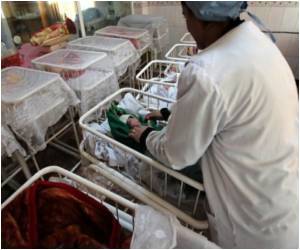
The study, which involves the use of blood spots obtained from a simple heel-prick, took place in the Belfast Hospital for Sick Children and the School of Pharmacy at Queen's.
The research was carried out by a team from the University's School of Pharmacy in partnership with the Regional Neonatal Unit in the Royal Maternity Hospital. It was funded by the Health and Social Care Research and Development Office (HSC R&D) and Action Medical Research.
Principal Investigator, Queen's Professor of Pharmacy Practice James McElnay said: "This type of testing will obviously reduce the discomfort of medicine testing in these vulnerable patients. What is even more important, however, is that it will ensure maximum accuracy in calculating the most appropriate dose of a medicine for a sick child.
"Some 80 per cent of infants in intensive care in hospitals receive medicines which have not been appropriately tested or licensed for use in such young patients, and the dosage is usually calculated based on licensed doses for adults or older children. Sizable blood samples are then required to measure the concentrations of the drug in the infant's bloodstream.
"Our work opens up opportunities for using the same approach to study other medicines which are used in this manner in children, and we are currently studying a number of these."
Advertisement
Source-Eurekalert









